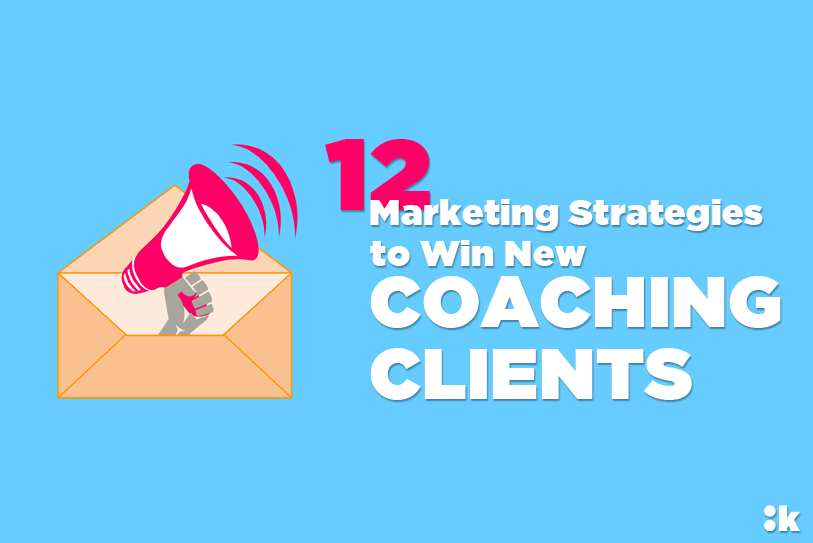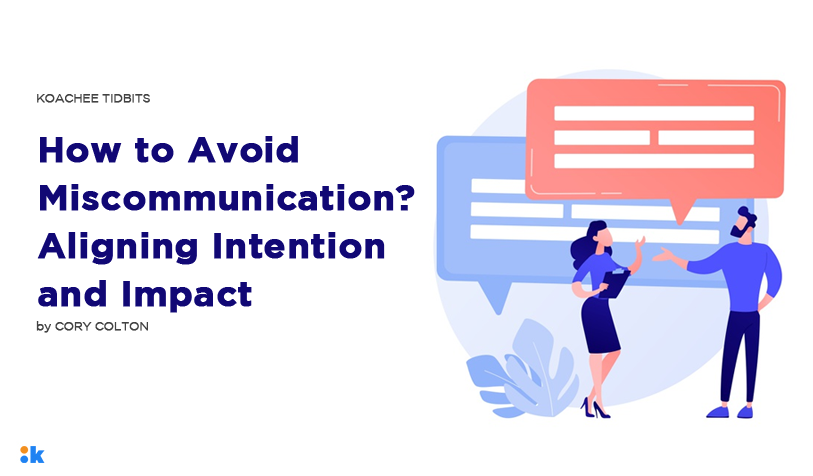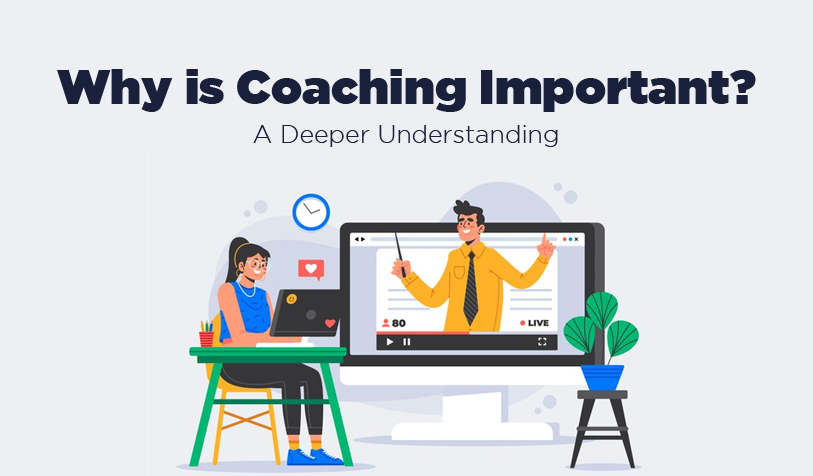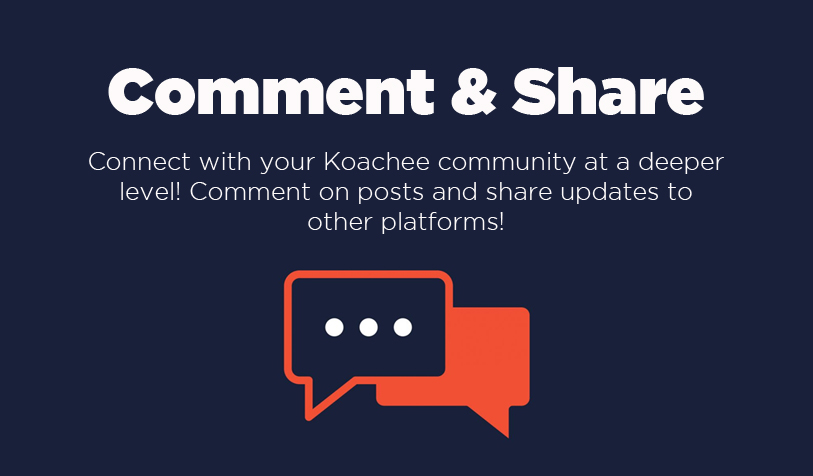How To Market Your Coaching Business: 12 Strategies to Win Clients
Table of Content
- Introduction
- Market Your Coaching Business: Strategies
- Conclusion
Whether you are an experienced coach or just starting out, ‘where do I find clients?’ is usually a common question. Marketing is a process; one that helps you attract potential clients for your services or product. Similarly, for your coaching services, strategic marketing can help transform your business within months.
But, where do you start?
We are part of a competitive market that continuously changes its course; it’s dynamic. Developing an effective strategy to market your coaching business can help transform your business into a brand.
Let’s dive right in! Here are 12 strategies on how to market a coaching business.
1. Networking
Regularly interacting with potential clients and businesses gives you the opportunity to spread awareness about your coaching services while staying updated with current market trends. If you attend targeted networking events you are likely to find individuals and businesses that are looking for your services.
If done right, you are likely to walk away with experience, referrals, and one-on-one coaching sessions scheduled.
So, how do you find relevant networking events near you?
Meetup is one handy platform if you are looking to network for your coaching business. You can search by category and by your geo-location to find several meetups (networking events) happening near you. A similar platform, Eventful, can be as helpful if you search through their conferences & tradeshow category.
More so, networking is not only offline today. With over 300 million active LinkedIn users, you would not want to miss out on leveraging the platform.
Pro Tip: Taking a sales approach to LinkedIn may not be as helpful as building genuine connections.
2. Facebook Groups
Facebook groups, an effective way to market your coaching business, are small communities that allow people who share mutual interests to communicate and exchange knowledge and resources.
Does it sound like a place to be? It is.
The two ways to become part of a Facebook group is to either join a pre-existing group in your industry or create your own.
Again, approaching Facebook Groups with an “I am here to sell” attitude would not be as beneficial as genuinely working to find quality leads in each group.
With Facebook groups, engagement is a more important metric than the number of members. Joining highly engaged groups will give you a higher reach. You can check engagement rates with some Facebook groups that are public.
How do I find Facebook Groups for my coaching services?
On Facebook, type your keyword in search, and go to groups.

Facebook will then show you relevant groups that you can join. Some groups may ask questions prior to joining which indicates a professional community.

Participation is a major factor in succeeding in Facebook Groups. Each group has internal search options that allow you to further refine posts in a group. Searching for ‘social media coach’ or ‘life coach’ can lead you to post discussing your areas of interest.
3. LinkedIn Marketing
LinkedIn is a free to use networking platform which allows you to connect with professionals all over the world, some of them being those you may not have the opportunity to meet personally otherwise. It is a great place to start.
It is a good practice to search for coaches on LinkedIn, and analyze how some of them have set up their profile to attract clients. If you connect with them, you can also approach them via the messenger to schedule an introductory call.
When connecting with other professionals, remember, when they connect with you, they will always visit your profile. Your LinkedIn profile needs to be professional, thorough and optimized for search.
Here is a great example.

Adding keywords to your LinkedIn profile that your potential clients are likely to search is helpful.
4. Content Marketing
To put it simply, content marketing is the use of valuable, and engaging content to reach potential customers through search engines, social media, and email newsletters.
Producing valuable content for FREE assists in building a brand around your coaching services. A strong brand name develops trustworthiness, credibility, and likeliness in potential clients to find and approach you for your coaching services.
Building a blog will allow you to enable a space on your website which you can use to share resourceful and insightful content about coaching.
Any content you create for your website can be used for your social media platforms and email newsletters too.
Effective content marketing also helps attract other blogs and online digital publishing magazines which you can collaborate with to increase referral traffic to your coaching website.
5. Public Speaking
In our recent post, How to Become a Social Media Marketing Coach: A Definite Guide we spoke of the importance of public speaking.
Public speaking allows you to gain exposure as an expert immediately.
Keeping updated with company events and joining associations like the Chamber of Commerce can help you find leads and public speaking opportunities.
If you are starting out as a coach, it will be a helpful practice to find small events with a smaller group to speak to.
6. Instagram Marketing
It is not surprising to look at Instagram and assume your target market is not on it. In 2019, Instagram hit 1 billion active users and whether a potential client is looking for a career coach or a fitness coach, they can certainly find one on Instagram.
Although Instagram is competitive, sharing content that reflects you as a coach can add to a client’s life and what it may be like to work with you, can help you get a stronger grip on marketing on Instagram.
Coaches on Instagram use a variety of content types, from videos to pictures, to collaborations and LIVE videos.

One of the most important elements in organic Instagram marketing for coaches is hashtags. Hashtags are keywords used with ‘#’ to categorize each post. With Instagram, you can use up to 30 hashtags per post.
A good practice is to use a mix.
However, hashtags alone would not help your coaching business. A mix of Instagram marketing techniques like engaging with other accounts, Gary Vaynerchuk’s $1.80 strategy, liking other posts, sharing viral content, and advertising all help.
7. Video Content Marketing
With the increasing use of social media platforms like Facebook and YouTube, individuals on these platforms have become immune to watching videos and that includes your potential clients as well.
Over the years, video content has been easier to consume as opposed to written content. Let’s say you bring home new furniture from Nebraska Furniture, and with it comes an assembly guide which would potentially take you an hour to read simultaneously. But you can also go to YouTube and find the exact same guide with video to better assist.
Video marketing has become essential for coaches.
One misconception of video marketing may be that you need a lot of equipment to kickstart making videos for your coaching business. However, with improved qualities, your mobile device would give you as good a result.
More than the quality, content matters.
8. Advertising
Over the years, social media platforms have dropped their organic reaches for businesses that shift business owners to invest in ads.
When you are starting out on social media platforms, you do not have enough audience to penetrate through. Hence, in order to reach a targeted audience, ads on Facebook, Instagram, and LinkedIn can assist in finding potential clients.
Online ad marketing has become complex but if you know your user persona (ideal potential coaching client) you would be able to run ad campaigns accurately to attract customers.

However, running ad campaigns cannot be an unplanned process. In order to get maximum ROIs, having landing pages that compliment your ads can really help.
For example, if you running an ad for a FREE consultation, you would want your potential client to land on a simple yet attractive webpage where they can give you relevant information like name, email, and phone number so you can successfully conduct your FREE coaching consultation session.
Similarly, you would have tweaked your ad campaigns for your purpose.
9. Podcasting
Although it is hard to imagine for many of us, there was a time when radio was the only mass media option available to the public. You would tune into it and hear a person talk about the latest affairs and endorse brands. But in today’s time, everyone can have a radio station in their living room.
Podcasts, as they are called, are digital audio files that you can access and listen to through your computers and mobile devices. Coaching makes a great topic for a podcast if you have value to give out to those in the process of becoming coaches or clients looking for one.
Podcasts can be either scripted or free-flowing, however, you prefer it. An ideal podcast lasts 15 to 30 mins and an episode is released once per week.
10. Email Marketing
Many say email marketing is dead, but the truth is, it is simply another way to get your coaching business into your potential client’s pocket. As you focus on blogs and creating valuable content, you can devise ways to generate email addresses of those interested in your content. For example, with a ‘sign up for latest updates’ pop up.
Once you have a sizeable list of email addresses of those who opted-in, you can start a weekly newsletter to cover topics they may be interested in.
Platforms like Mailchimp and Constant Contact can assist in designing and automating newsletters.
11. Online Coaching Platforms
When you search the web for online coaching platforms, you will find several coaching softwares that help you organize your coaching practice. Although, these are great to manage your business with, if you are looking to market your coaching services, you are likely to be looking for an all-in-one coaching platform like Koachee which helps with connecting coaches and potential clients.

Online coaching platforms like ours do the work for you and ease the way for you to conduct your coaching business. Signing up as a coach, you can add credentials, about, portfolio, and reviews to help potential clients trust in your services.
12. Webinars
Another effective way to market your coaching business is by conducting webinars. Webinars are video workshops you conduct virtually to pass on the value you have. You can design your webinars to be focused on aspiring coaches or potential clients.
Webinars can be conducted via platforms like Zoom and Skype, but softwares like Adobe Connect and GoToWebinar can add comprehensive details to your webinar allowing you to generate data to use later as well.
Conclusion
Marketing your coaching services is essential and using the right marketing strategies for your coaching business can help you become a brand for the long run.
Some of the above-mentioned marketing strategies may not give you immediate results but consistently focusing on them will. By leverage social media platforms, search engines and online coaching platforms, you will be able to gain exposure and deliver results to your clients.







